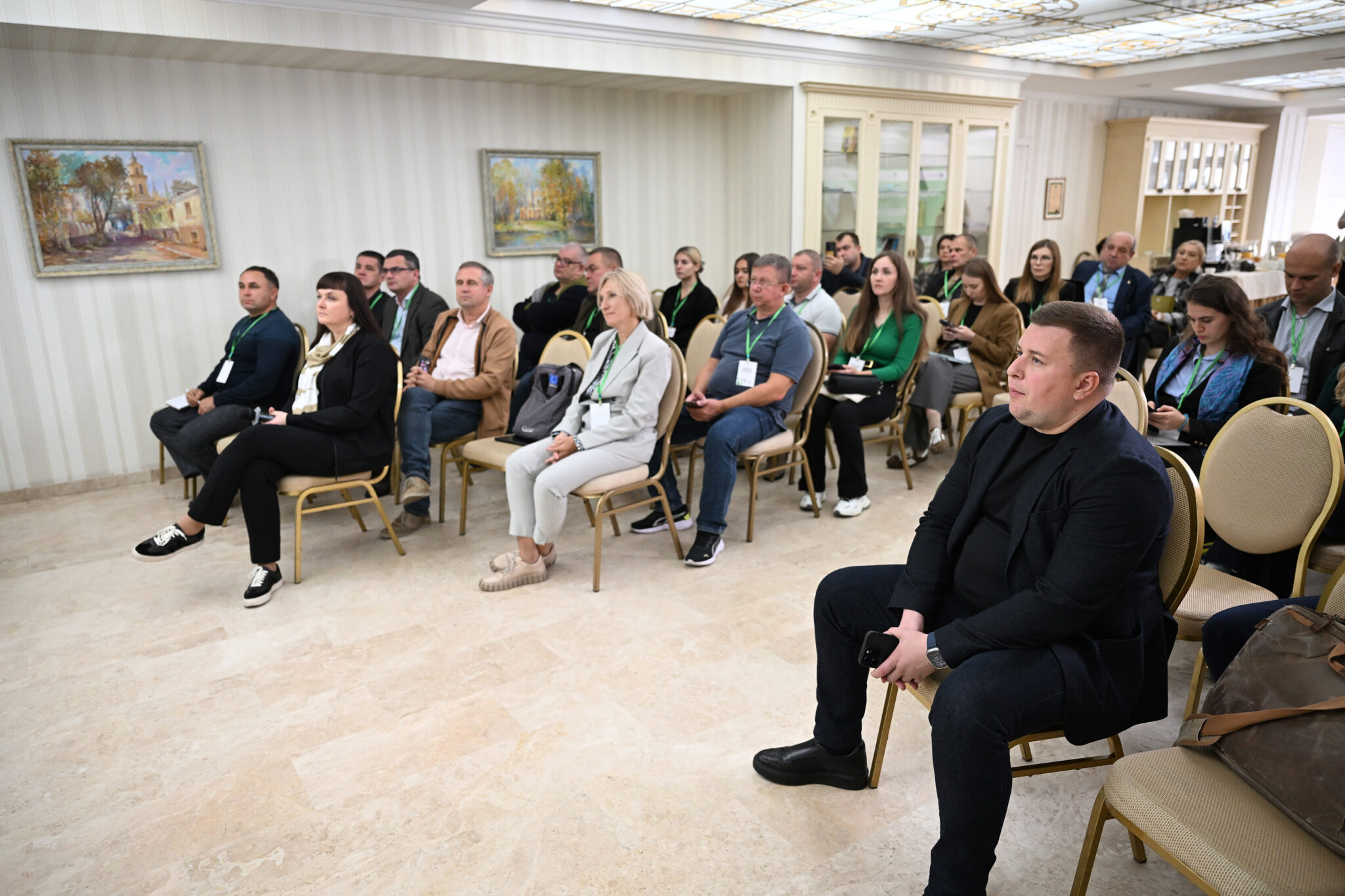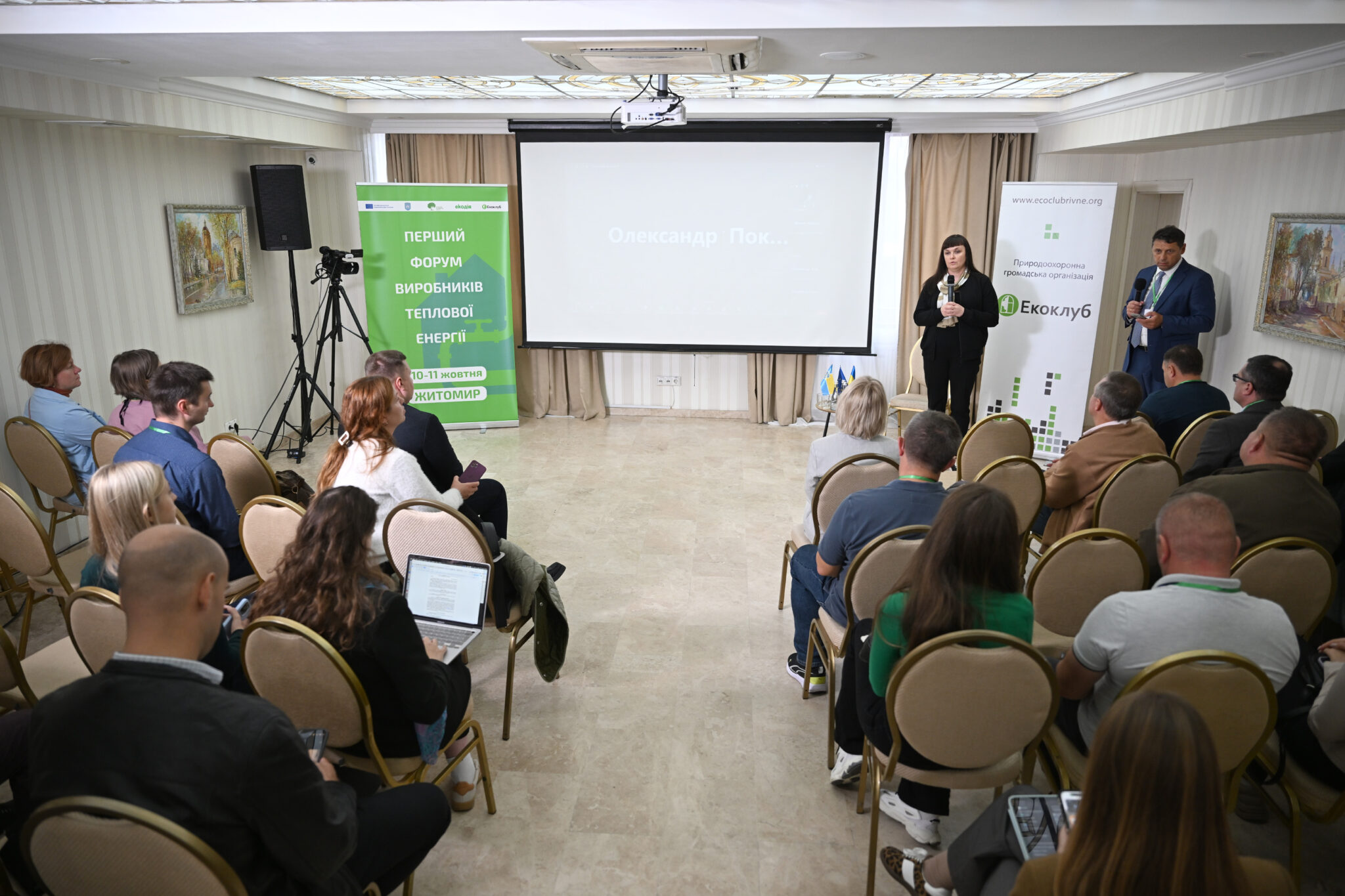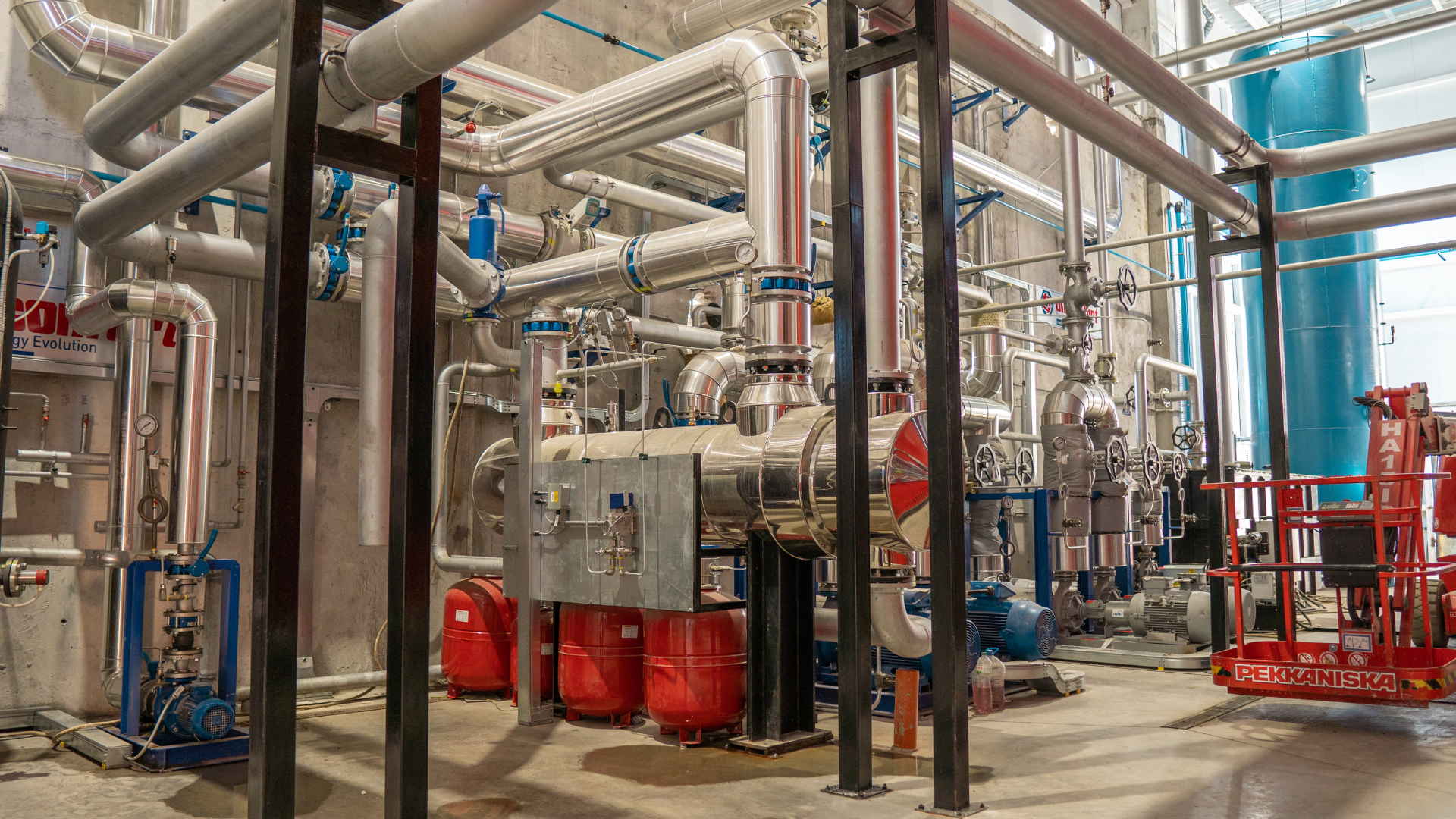District heating is a valuable resource for Ukrainian municipalities. Upgrading networks and equipment, using environmental-friendly technologies will help enterprises carry out reforms and municipalities save money, improve the quality of heating supply and, as a result, earn money doing so and create jobs.
More than half Ukrainian communities have preserved systems of district heating. But aged and ineffective equipment, waste and badly insulated networks cause high heat losses during production and transport. Government tariff policy slows down legitimate increasing of a heat price and does not facilitate improving the situation. Therefore, consumers receive low quality services for relatively high costs. To encourage more communities to develop district heating systems, the First Forum of Heat Producers was held in Zhytomyr, an event for managers of municipal heating companies and community workers.


Zhytomyr community shared their own experience of upgrading district heating systems. In the community modernization of networks and replacing of boiler equipment leaded to minimizing of heat losses by 6%. The municipality supplies better services and the consumers pay less. Now 972 residential buildings, 393 social facilities and 526 buildings use district heating services.
The participants visited the community’s utilities and their generating capacities and got acquainted with the achievements of Zhytomyrteplocomunenergo.


“The community has ambitious plans to gradually switch to renewable energy sources in its district heating. We are planning a number of initiatives to help bring the community closer to greater energy independence in 2024-2028,” said Dmytro Rohozhyn, Director of Zhytomyrteplocomunenergo.
Community plans to:
– reconstruct a regional boiler – install biomass CHP plants with a capacity of up to 12 MW of heat and 1.2-1.8 MW of electricity (wood chips are the fuel);
– to build a CHP plant using solid renewable fuel SRF with an admixture of wood chips, with an electric capacity of 9.9 to 13.1 MW and heat production of up to 22 MW;
– reconstruct the regional boiler house – install a power plant with an electric capacity of 9 MW and 9 MW of heat energy based on gas turbine units;
– reconstruct the regional boiler house, where 2 biofuel boilers will be installed. The total capacity is 6 MW (fuel – wood chips);
– install a modular solid fuel boiler with a capacity of 1.8 MW at the regional boiler house;
– build 16 waste heat recovery units at 10 boiler houses;
– install 17 heat pumps.
Even small municipalities are developing and updating their district heating systems. Zviahel shared his experience. The community plans to develop cogeneration, install condensing boilers at one of the boiler houses, re-equip two boiler houses and completely renovate the networks. The company’s management has high hopes for the provision of additional services that will allow them to receive payment for reducing consumption. In other words, for energy efficiency projects.

“We have replaced 76% of the old networks with pipelines using polyurethane foam insulation. As a result, we reduced network losses from 9% in 2010 to 6% in 2023. In addition, 23 out of 26 boiler houses were modernised, where boiler equipment was completely replaced,” says Pavlo Kotonos, head of the production and technical department of Zviahelteplo of the Zviahel City Council.
Despite the success of some utilities, the overall state of the industry in Ukraine is very poor. Household consumers already owe more than UAH 29 billion. This prevents utilities from making money and upgrading equipment, and the quality of services suffers. The state pledged to compensate for the debt, but the budget had resources for this only in 2021: out of the planned UAH 22.45 billion, district heating companies paid UAH 22 billion, said Roman Nitsovych, Research Director at DiXi Group. The expert predicts that the debt will grow, as the heating companies have not yet received the promised compensation for the difference in tariffs.
At the forum, Ecoclub presented the results of a study of the economic situation of heat suppliers. The study analysed four companies – Cherkasyteplocomunenergo, Poltavateplocomunenergo, Zhytomyrteplocomunenergo and Rivneteploenergo LLC. The study showed that the right management decisions are the basis for success. This is proved by Cherkasyteplocomunenergo, which makes a profit for additional services to consumers.
The study also showed that private ownership does not indicate efficient management. This is the case in Rivne, where the networks are the most worn out among all the enterprises compared. Therefore, heat losses during production and transportation are higher.
The participants also discussed where to get resources for the development of district heating. The government is currently setting up financial mechanisms to help modernise enterprises. One of them is the Decarbonisation Fund.

“The Fund accumulates money from the carbon tax and directs it to energy efficiency projects. We provide loans for energy efficiency measures and for replacing traditional fuels with alternative ones,” said Olena Lenska, Director of the Alternative Energy Department at the State Agency on Energy Efficiency and Energy Saving of Ukraine.
The next Forum will be held in Cherkasy.
“Such a forum allows all stakeholders to exchange ideas, knowledge and motivation. We will work to ensure that such forums are held every year, and maybe even more often, for the benefit of our entire country,” said Andriy Martyniuk, Executive Director of Ecoclub.
Watch speakers’ presentations. Watch the event recording.
The event was held within the framework of the project ‘Closing the Loop: A Just Energy Transition Designed by Cities and Regions’ by the European Commission. Its contents are the responsibility of the NGO Ecoclub and do not necessarily reflect the views of the European Union.












